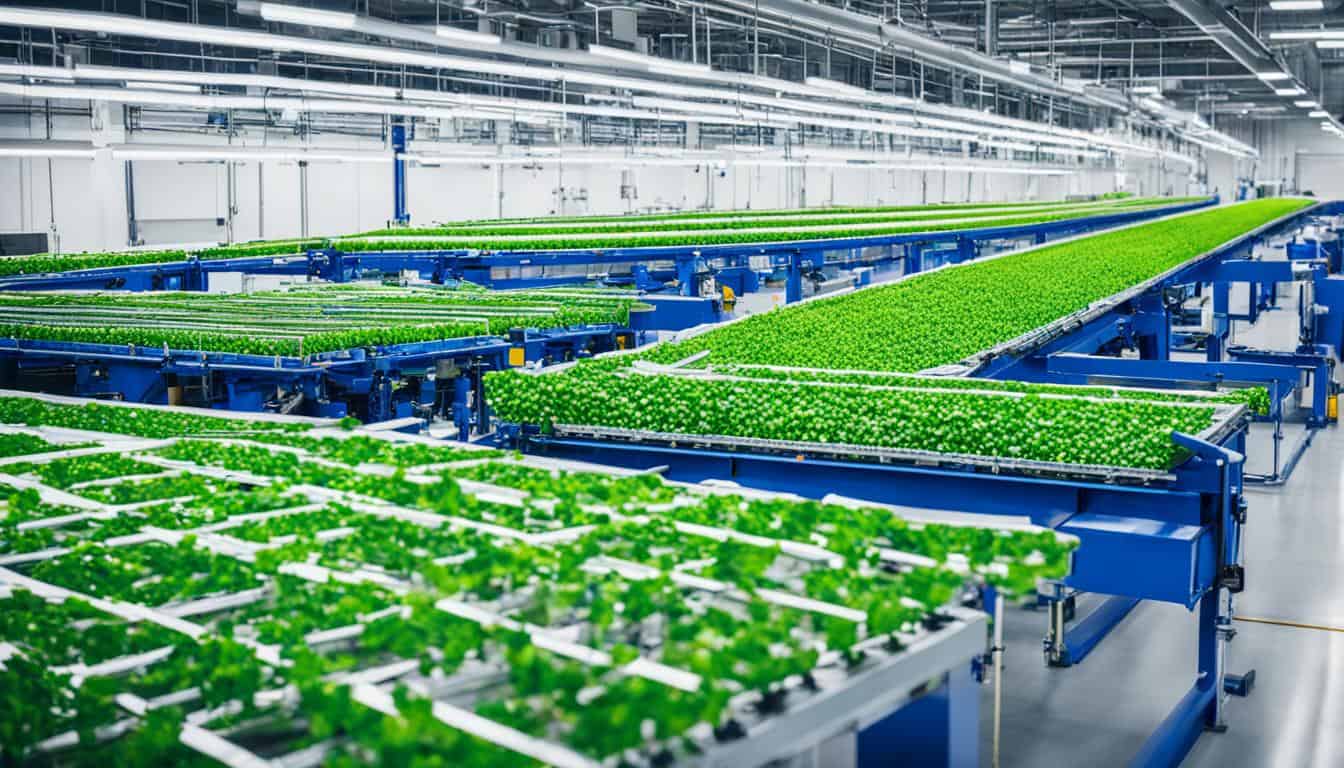As we embark on this journey, let’s explore the fascinating world of sustainable, fair trade. In this world, eco-friendly products and fair labor practices intersect, ethical sourcing becomes the norm, and worker empowerment is inherent. Environmental sustainability and social responsibility take center stage. Companies like Equal Exchange and Ten Thousand Villages and networks like Green America’s Green Business Network are ardent flag bearers of this movement.
A deeper understanding of sustainable goods and fair trade products can help us become part of a responsible capitalist system that values justice, fair labor, and people-centric connections. Transformed into conscious consumers, we can co-create a world where the well-being of communities and the natural environment they depend on is paramount.
Key Takeaways
- Sustainable, fair trade is a holistic approach to business and trade that prioritizes fair labor practices, ethical sourcing, worker empowerment, environmental sustainability, and social responsibility.
- Companies like Equal Exchange and Ten Thousand Villages, bolstered by networks like Green America’s Green Business Network, drive the sustainable, fair trade movement, connecting consumers and producers through transparency and respect.
- Eco-friendly products produced under fair labor conditions represent a more responsible capitalist system where sustainability, justice, and people-centric connections reign supreme.
- As consumers, gaining comprehensive knowledge about sustainable goods and fair trade products allows us to make informed decisions and support businesses that value environmental and social welfare.
- Understanding sustainable, fair trade helps foster communities’ well-being and the conservation of the natural environment.
Understanding Fair Trade and Its Impact on Sustainable Development
The crux of the fair trade ecosystem is to engineer an equitable global economy that treasures both the producers and their communities and, in return, promotes sustainable development. Amidst the enthralling realms of fair trade, certifications like Fairtrade America and Fair Trade USA have surfaced as the assurance of adherence to labor and sustainability standards. These systems are designed to address the pressing concerns like rampant forced and child labor while upholding the right to collective bargaining.
The Principles of Fair Trade
The fair trade movement is based on an intricate network of principles. By setting a robust floor price and channeling social premiums towards community projects, fair trade charts a course towards a responsible and sustainable form of economic growth.
| Principles of Fair Trade | Description |
|---|---|
| Community Support | Building strong, cohesive communities by investing in local projects and initiatives. |
| Economic Empowerment | Pushing for income stability and growth opportunities for producers in global South. |
| Sustainable Production and Living | Promoting production techniques that are kind to the planet and fit into a sustainable lifestyle. |
| Responsible Sourcing | Encouraging buyers to prioritize ethical and fair trade suppliers in their procurement process. |
| Fair Labor Conditions | Advocating for decent work conditions, fair wages, and respect for workers’ rights. |
How Fair Trade Contributes to Sustainable Economic Growth
By focusing on the cooperative business model, fair trade seeks to elevate the status of small-scale producers, offering them the scope for economic mobility. This approach propels the producers towards their goals of sustainable economic development, nurturing their dreams of green living and giving them the reins of their own financial actions.
Ecosystem of Fair Labor: The Role of Certifications and Standards
In our modern global economy, certifications have become fundamental in ensuring transparency and cracking down on unethical labor conditions. Fairtrade certification has emerged as a reliable standard in the fair labor ecosystem. This certification, endorsed by institutions like Fairtrade America and Fair Trade USA, provides consumers with a credible reference that upholds sustainable certification, supply chain accountability, social standards, and environmental criteria.
Paulette explains that the Characteristics of fair trade include fair wages, cooperative workplaces, consumer education, environmental sustainability, direct trade, financial and technical support, community development, and public accountability.
Insights into Fair Trade Certifications: Fairtrade America and Fair Trade USA
A primary feature of Fairtrade certifications is that they help consumers navigate the complex world of international trade. Certifications issued by Fairtrade America and Fair Trade USA serve as a stamp of trust, demonstrating that the product has been sourced and produced in conformity with responsible business practices and ethical standards.
“Fairtrade Certification allows consumers to recognize businesses that are committed to sustainable environmental practices and fair labor conditions.”
As consumers become progressively aware and discerning, businesses committed to ethical certification find they can distinguish themselves in the marketplace.
Environmental and Social Criteria in Certifications
The environmental criteria included in these certifications help promote sustainable farming methods that contribute significantly to water and soil conservation. On the social standards front, certifications insist upon a fair deal for workers, with practices including prohibiting child labor and guaranteeing workers’ rights to secure fair wages and safe working conditions.
- Fair Treatment: Workers are paid a fair wage, work reasonable hours, and have the right to form trade unions.
- Prohibition of Unfair Labor Practices: The Fair Trade network strictly prohibits child labor, forced labor, or any form of exploitation.
- Environmental Sustainability: Certified products adhere to strict environmental guidelines, and firms demonstrate a commitment to sustainable supply chain management, biodiversity, and low-impact farming practices.
The broad objective of these certifications is to integrate environmental well-being concerns and fair labor practices, thereby creating a viable and sustainable trading ecosystem.
The Ethical Supply Chain: From Source to Shelf
Creating an ethical supply chain is an essential yet complex process, stretching from the source of raw materials to the consumers’ hands. It involves significant efforts to ensure transparency, accountability, and fairness throughout each stage. One of the primary challenges that businesses and consumers face in promoting ethical sourcing is maintaining transparency in the supply chain.
Challenges of Maintaining Transparency in the Supply Chain
Numerous stages are involved in a product’s journey from its origin to its destination, each with its own set of complexities. Obstacles like unregulated labor practices, inadequate environmental standards, or opaque sourcing policies are common hurdles. Despite these challenges, remarkable strides have been made in recent years toward establishing a more transparent supply chain. Through collaborations and robust models like the Direct Trade model, many businesses set the foundations for a more transparent, ethical, and sustainable supply chain.
Collaborations for Ethical Sourcing: The Direct Trade Model
Emerging as an alternative to traditional trade systems, the Direct Trade model has been making waves, notably within the specialty coffee and chocolate markets. This progressive approach enables businesses to purchase directly from cooperatives, eliminating intermediaries and promoting a more equitable distribution of resources.
| Traditional Trade | Direct Trade |
|---|---|
| Many intermediary steps between producers and consumers | Businesses purchase directly from cooperatives |
| Complex and often opaque supply chain | Greater transparency in sourcing |
| Inequitable distribution of resources | More equitable distribution of resources |
These unmediated relationships allow businesses to provide more support to producers while keeping consumers informed about the origin of their purchases, promoting transparency, and fostering trust. By adopting the Direct Trade model and other similar strategies, companies can more effectively mitigate supply chain challenges and promote practices that are both legally compliant, ethically responsible, and socially beneficial.
Investing in Fair Labor Practices for a Better World
In the crusade for a better world, investing in fair labor and community empowerment surfaces as noble initiatives. The ethos of the Fair Trade model fuels this endeavor by orienting businesses towards ethical investments that promote sustainable growth in the community. The bedrock principles of this endeavor embody the vision of a world where worker-owned cooperatives and local communities flourish through sustainable development.

Communities Empowerment Through Fair Trade Initiatives
Fair Trade initiatives are where the energy of ethical investment finds diverse and impactful outlets. Investment in fair labor and social premium projects helps local communities thrive, catalyzing sustainable community growth. The spotlight shines on worker-owned cooperatives, a symbol of the embodiment of the Fair Trade model, where workers have a stake in the business and, therefore, a vested interest in its success.
Projects Funded by Fair Trade’s Social Premium
Investments from Fair Trade initiatives don’t just help burgeoning businesses. They also fuel social premium projects. Such projects originate from a portion of revenues funneled back into financing community development. These finances then actualize into programs and facilities that pivot towards community development. The outcomes cover a broad spectrum, with instances of maintaining healthcare facilities, funding educational scholarships, and fostering women’s empowerment programs.
| Ethical Investments | Community Benefits |
|---|---|
| Social Premium Projects | Educational Scholarships |
| Investing in Fair Labor | Healthcare Facilities |
| Worker-owned cooperatives | Women’s Empowerment Programs |
This living testament to the objectives of economic, social, and community development signifies Fair Trade’s commitment to fair labor practices. Not just in its enforcement but also through its active promotion, Fair Trade emerges committed to the holistic development of communities where producers live and work.
Eco-Friendly Products Fair Labor Practices: A Consumer’s Guide
Being a consumer in today’s diverse market can sometimes feel like navigating a maze, especially when it comes to making ethical choices. With the growing awareness around sustainability, green consumerism is on the rise. But how exactly do we ensure our purchases support fair labor and are eco-friendly?
This guide aims to equip you with practical insights and tools to enable your journey towards conscious purchasing.

When hunting for eco-friendly products, it’s essential to first understand what they imply. Eco-friendly products are those made with minimal harm to the environment, often using renewable resources, and are built to last, reducing wastage.
The Fair Trade USA certification is one check to look out for. This certification implies that the product has met rigorous social, economic, and environmental standards. Spotting this label signifies that workers have received fair wages, the environment has been protected, and sustainable development is being promoted.
Remember, every purchase you make is a vote for the kind of world you want to live in. Conscious purchasing is a powerful catalyst for reform in the way we do business.’
Next, educate yourself on the production methods of sustainable goods. Companies that are transparent about their production practices are often a safe bet. They will usually disclose where their raw materials come from, how they’re processed, and their environmental impact.
Another good practice is to look for companies endorsed by the Green Business Network. The Green Business Network is a reputable organization that recognizes businesses committed to social responsibility and environmental stewardship.
- Research about the product and the company behind it.
- Look for certifications like Fair Trade USA.
- Examine the company’s transparency about its production methods and supply chain.
- Check for endorsements from reputable organizations, like the Green Business Network.
Consumer responsibility is crucial in driving change towards sustainable and fair business practices. By making educated decisions in our shopping habits, we can promote fair labor, support sustainably made products, and contribute to a healthier planet.
Green America and Its Pioneering Role in Promoting Fair Trade
Over the years, Green America has emerged as a beacon in the fair trade movement, championing the mission of promoting ethical sourcing and sustainable trade leadership. With innovative ideologies and effective implementation strategies, this organization has aligned businesses and consumers on the path towards fair labor practices and broader social commitments.

How Equal Exchange and Ten Thousand Villages Paved the Way
Trailblazers like Equal Exchange and Ten Thousand Villages have made a palpable impact by embracing the fair trade model. By establishing direct and meaningful connections between consumers and producers, these institutions have fostered a scenario where all parties involved in the trade process garner equitable benefits. Their pivotal role in supporting worker-owned cooperatives has imbued local communities with significant social and economic empowerment.
Green Business Network and Its Members’ Commitment
Unwavering in its commitment to environmental responsibility and social ethics, the Green Business Network (GBN) has shown how business transparency and principled dealings can make a notable difference in creating a healthier planet. GBN members consistently strive to run their operations in ways synonymous with sustainability, girding their practices with firm adherence to environmental stewardship and fair labor practices. Their concerted efforts thus exemplify the seamless integration of business with a social conscience.
| Organization | Key Initiatives | Impact |
|---|---|---|
| Green America | Promotion of fair trade and environmental responsibility | Influential in shaping business and consumer understanding and adoption of fair trade principles |
| Equal Exchange | Direct connections between producers and consumers | Economic empowerment at community level through support of worker-owned cooperatives |
| Ten Thousand Villages | Fair trade advocacy and education | Enabled sustainable relationships between artisans and consumers, fostering economic stability in marginalized communities |
| Green Business Network | Guidance and recognition for businesses adhering to principles of green initiatives and fair labor practices | Strengthened business accountability, fostering a model of sustainability and ethics |
Promoting Eco-Friendly Agricultural Practices and Products
In today’s sustainability-driven world, much emphasis is being brought on adopting ecologically friendly agricultural practices. Fair Trade agreements are at the forefront of this movement, stringently mandating a commitment to organic farming and solidifying the avoidance of toxic agrochemicals. In doing so, they favor natural pest management, promoting conservation and environmental stewardship.
Organic Farming and Reduction of Toxic Agrochemicals
One of the key ways is through the promotion of organic farming. This sustainable farming approach discourages using synthetic, potentially harmful pesticides and fertilizers. Instead, it emphasizes an ecosystem management approach where soil fertility is maintained, and pests are controlled naturally. This, coupled with the significant reduction of toxic agrochemicals, contributes effectively towards soil conservation and water conservation, leading to improved environmental health and more extraordinary biodiversity.
The Intersection of Fair Trade and Environmental Standards
The intersection of Fair Trade and environmental standards creates a potent synergy, further propelling the shift away from conventional agricultural practices. Trading partnerships formed under the aegis of Fair Trade ensure fair labor practices and impose stringent environmental criteria. This powerful melding of social justice with environmental conservation is a transformative force, leading to a more sustainable and equitable form of agriculture while significantly reducing fair labor environmental impact.
Advocating for Workers: Fair Labor as Economic Empowerment

Empowering the global workforce is not just about doing the right thing, it’s about altering the foundation of our economic system towards a fair and equitable model. This comprehensive, reformative approach focuses on advocating for workers in every sector, ensuring their rights, safety and dignity in the workplace. In essence, fair labor is about economic empowerment for everyone.
Fighting Against Child Labor and Forced Labor
The fight against child and forced labor is far from over. With its stringent guidelines and standards, the fair trade movement works relentlessly to combat these inhuman practices. It provides a roadmap for companies worldwide to follow, advocating for worker rights, humane conditions, and strict prohibition of child and forced labor. This is not merely about adhering to legal requirements but about actively promoting human rights at the heart of business operations.
The Importance of Fair Wages and Safe Working Conditions
Beyond combating labor exploitation, fair trade also provides equitable employment opportunities with fair wages and safe working conditions. It advocates for workers’ economic advancement by ensuring they receive wages that not only support livelihoods but also enable economic progress. Furthermore, it pushes for work environments that meet health and safety standards, allowing employees to work respectfully and without fear.
But economic empowerment goes beyond fair wages; it also involves providing opportunities for professional growth and leadership.
One of the ways Fair Trade does this is by promoting the role of women in leadership positions within cooperatives and advocating for gender equality in the workplace. This elevates their economic status and contributes to overall labor empowerment, proving that fair trade is far more than a mere compliance system.
| Aspect | Description |
|---|---|
| Child and Forced Labor | Fair trade guidelines strictly prohibit child and forced labor, advocating for labor rights and humane conditions. |
| Fair Wages | Fair trade emphasizes ensuring workers receive fair wages that support their livelihood and enable economic progress. |
| Safe Working Conditions | Fair trade mandates work environments that meet health and safety standards, pushing for dignity and safety for all workers. |
| Leadership Opportunities | Fair trade promotes leadership roles for women in cooperatives, fostering gender equality and overall labor empowerment. |
Direct Impact of Climate Change on Fair Trade Farmers and Producers
In this premier era of climate awareness, a sustainable environment has become a global priority. Yet, despite everyone’s best efforts, the effects of climate change continue to be detrimental, posing a significant concern to farmers and producers worldwide, particularly those within the fair trade ecosystem. Regrettably, these individuals find themselves directly impacted, often with devastating consequences.
Farmers Facing the Frontlines of Climate Change
Considering the impact of climate change on Fair Trade farmers, it’s clear to see the daunting challenges they face. From sweltering heatwaves to unnerving cold snaps, agricultural workers are experiencing the brunt of climatic shifts firsthand. These meteorological extremes are not just environmental crises; they threaten the livelihoods of many, making sustainable farming an uphill task. But even as we witness these adversities, Fair Trade farmers worldwide remain steadfast, and their resilience is an example for us all.
Fairtrade’s Response to Environmental Crises
Amid the storm, Fairtrade presents a beacon of hope. Bolstered by carbon credits and other supportive initiatives, Fairtrade has emerged as a proactive entity in combating the adverse effects of climate change. Their response encompasses a comprehensive strategy involving rigorous environmental protection standards for certification and teaching agroecology skills to help farmers adapt to an ever-changing climate. Such efforts are further fortified with offerings, including minimum price coverage and premiums to Fair Trade farmers, fostering an upgrade in climate adaptation mechanisms.
With climate justice and trade justice intertwined, it’s clear that mitigating climate change significantly influences the dynamics of the Fair Trade sector. By acknowledging the impacts of climate transformation and implementing adaptive strategies, we contribute to a more sustainable future for Fair Trade farmers and our planet. It’s an onerous journey but one that’s vital for the preservation of our planet and its inhabitants.
FAQ on Eco-friendly Products Fair Labor Practices
Q: How does green living relate to the Sustainable Fair Trade and Fair Labor Practices of Eco-friendly products?
A: Green living corresponds directly with encouraging sourcing and fair labor practices, and promoting products made with ethical and sustainable standards. Choosing to support eco-friendly products under the umbrella of Sustainable Fair Trade ensures environmental sustainability and labor laws are adhered to, ultimately protecting the environment and reducing the exploitation of workers.
Q: How can I connect with the stakeholders involved in pushing for environmentally sustainable and fair labor practices?
A: We encourage you to connect with us via our website, social media platforms, and at the annual Sustainable Fair Trade events. Engaging with NGOs dedicated to promoting fair trade and fair labor practices can also offer opportunities to become more involved.
Q: What related news and updates can I find about the improvements in Eco-Friendly Products’ fair labor conditions?
A: There are many sources of related news about Eco-Friendly Products’ fair labor conditions, such as our newsletters, blogs and updates on environmental certification progress. We also encourage you to connect with us and join various third-party platforms that share similar updates.
Q: What’s the role of third-party in relation to improving ethical standards and sustainability?
A: Third-party organizations play a key role in ensuring transparency, adherence to the best ethical practices, and fair labor conditions. They usually conduct audits on companies to verify that eco-friendly products are truly sustainable and socially responsible, and that workers are not subjected to sweatshop conditions.
Q: What does “fair price” mean within the context of Sustainable Fair Trade?
A: A fair price in the context of Sustainable Fair Trade means that producers – often farmers and workers in developing countries – receive a price that fairly compensates for their labor and supports a sustainable living. It also integrates the cost of adhering to responsible social and environmental practices into the pricing model.
Q: How can a consumer ethically support fair labor practices in eco-friendly product production?
A: Consumers can ethically support fair labor practices by buying products that are certified as fair trade and fair labor, thus ensuring their purchase backs companies that meet ethical and sustainable standards. Also, becoming members of green living platforms and participating in initiatives such as the matching gift challenge can further contribute to the cause.
Q: If a product is tagged with the Fabric Act, what does this imply about its sustainability and fair labor practices?
A: If a product is tagged with the Fabric Act, this implies that it meets specific standards related to its sourcing, including prohibition of the use of toxic agrochemicals. It also indicates that the product’s manufacturers are adhering to fair labor laws and are committed to the best ethical practices and standards.
Q: How does the Fair For Life certification empower sustainable and ethically-made products?
A: The Fair for Life certification is a globally recognized standard for fair trade and fair labor practices. When a product earns this certification, it signifies that it is produced under conditions that promote a sustainable and socially responsible environment. This, in turn, empowers companies to continue these practices and gives assurance to consumers about the products they purchase.
Q: Can fair labor conditions and environmental sustainability coexist in the production of eco-friendly products?
A: Absolutely. Fair labor conditions and environmental sustainability are not mutually exclusive, and in fact, must coexist for the production process to be considered truly sustainable. Advocating for sweatshop-free environments, promoting fair price, and reducing the number of products that include use of toxic agrochemicals are all aspects of this dual approach.
Q: What steps have been made in eradicating the exploitation of workers in the eco-products industry?
A: Significant advancements have been made to decrease worker exploitation including the enforcement of labor laws, partnering with stakeholders to ensure fair price, and pushing companies to receive third-party ethical and environmental certification. Furthermore, sustainable and socially responsible movements like Sustainable Fair Trade are actively raising awareness and pushing for change across the industry.





Leave a Reply